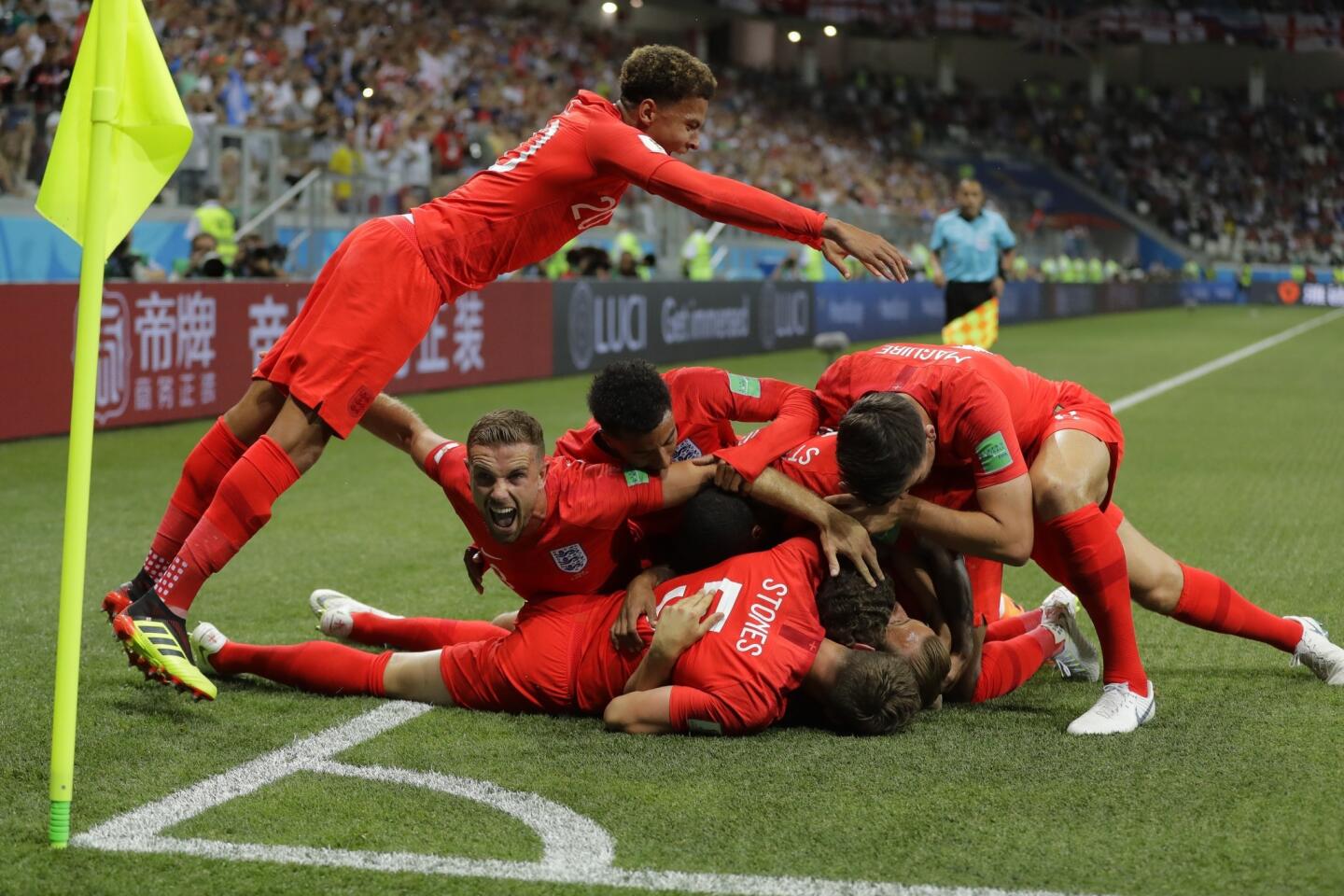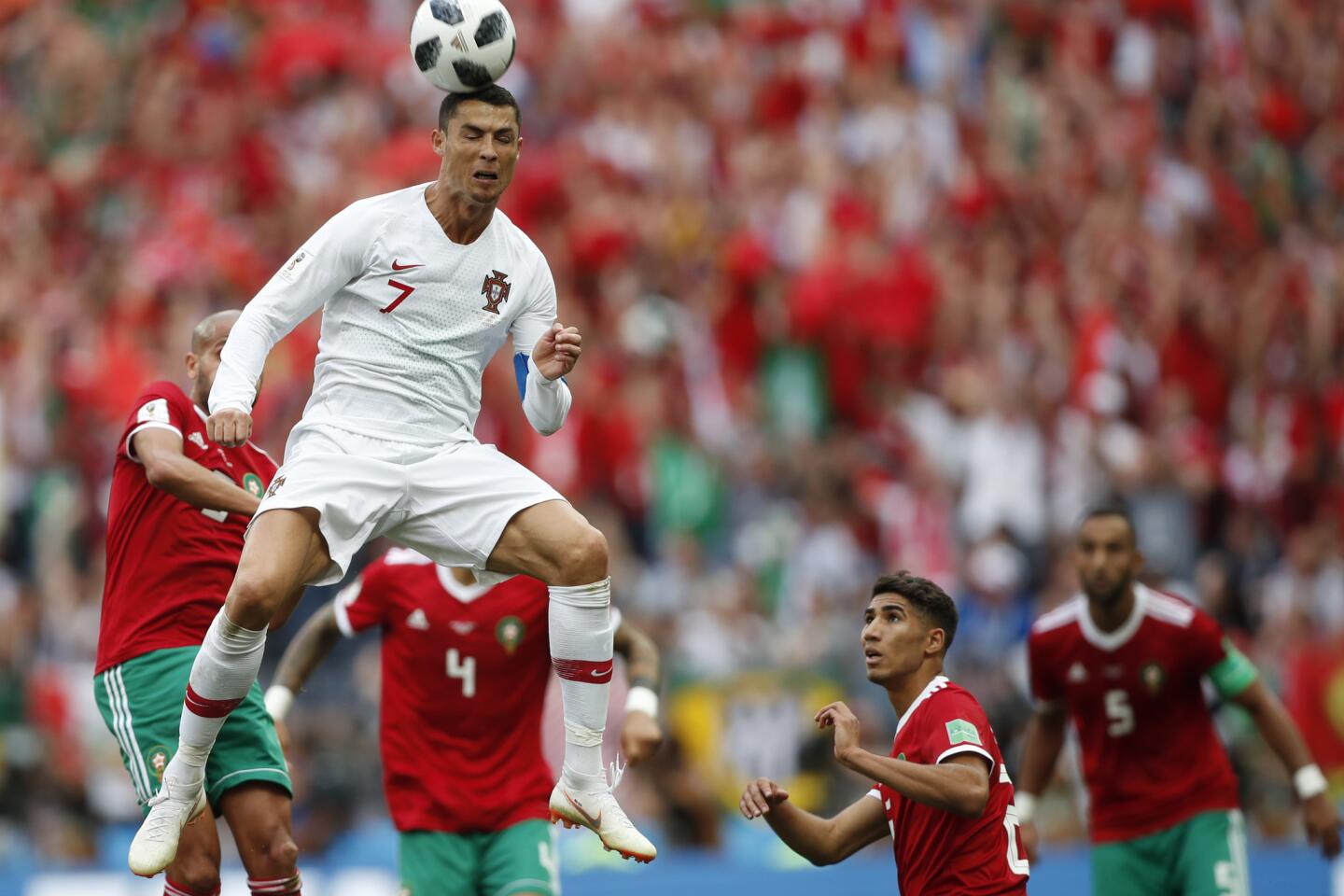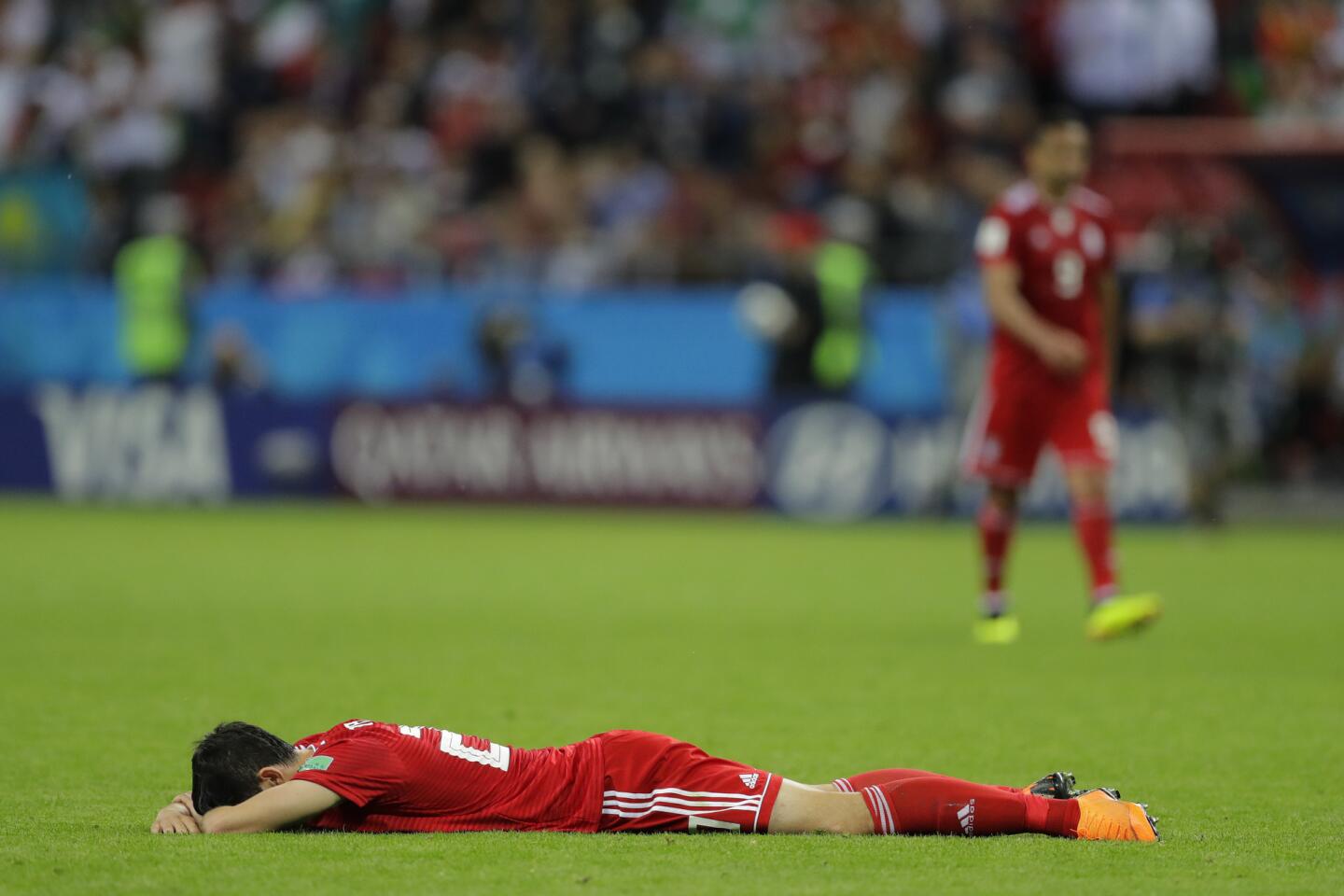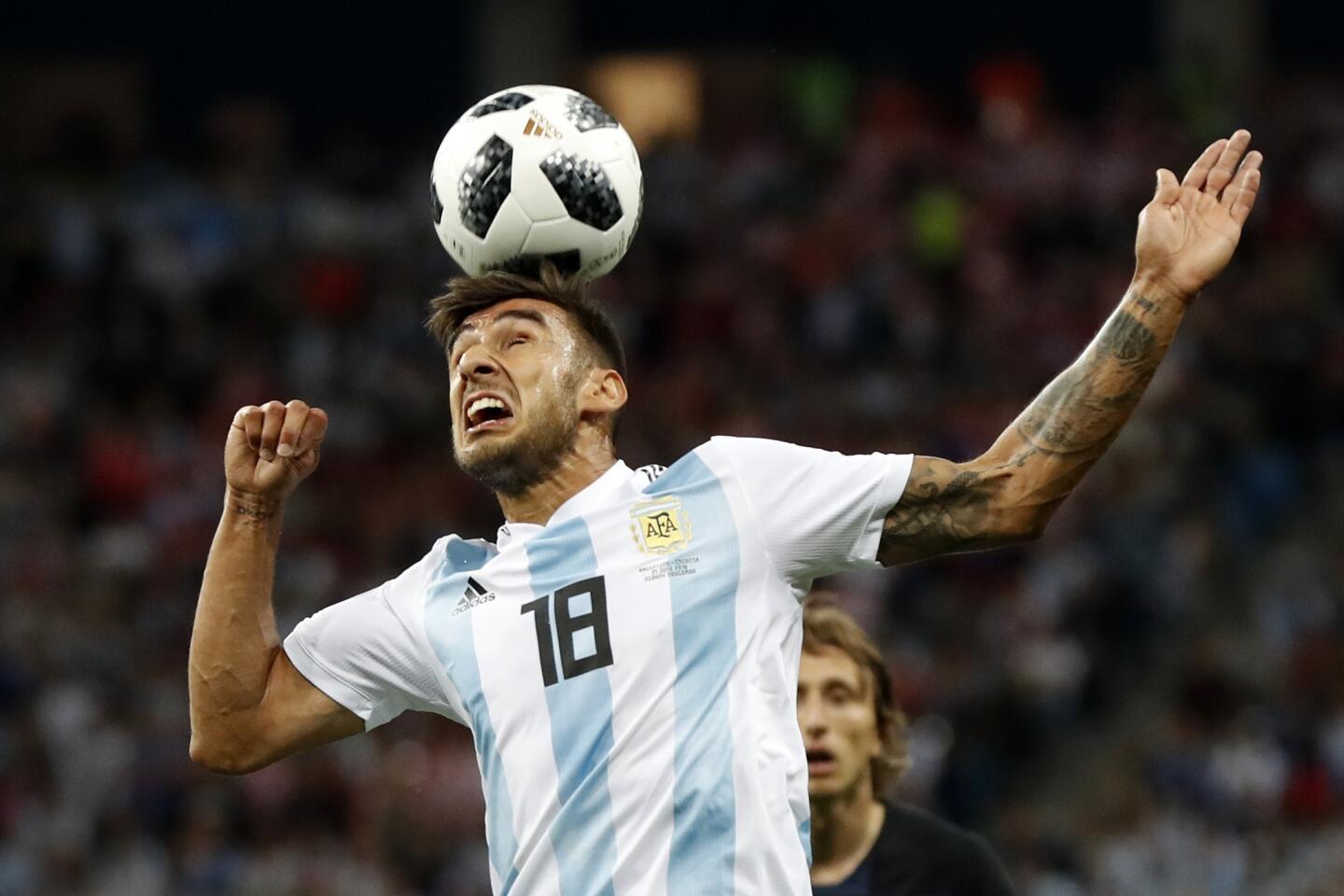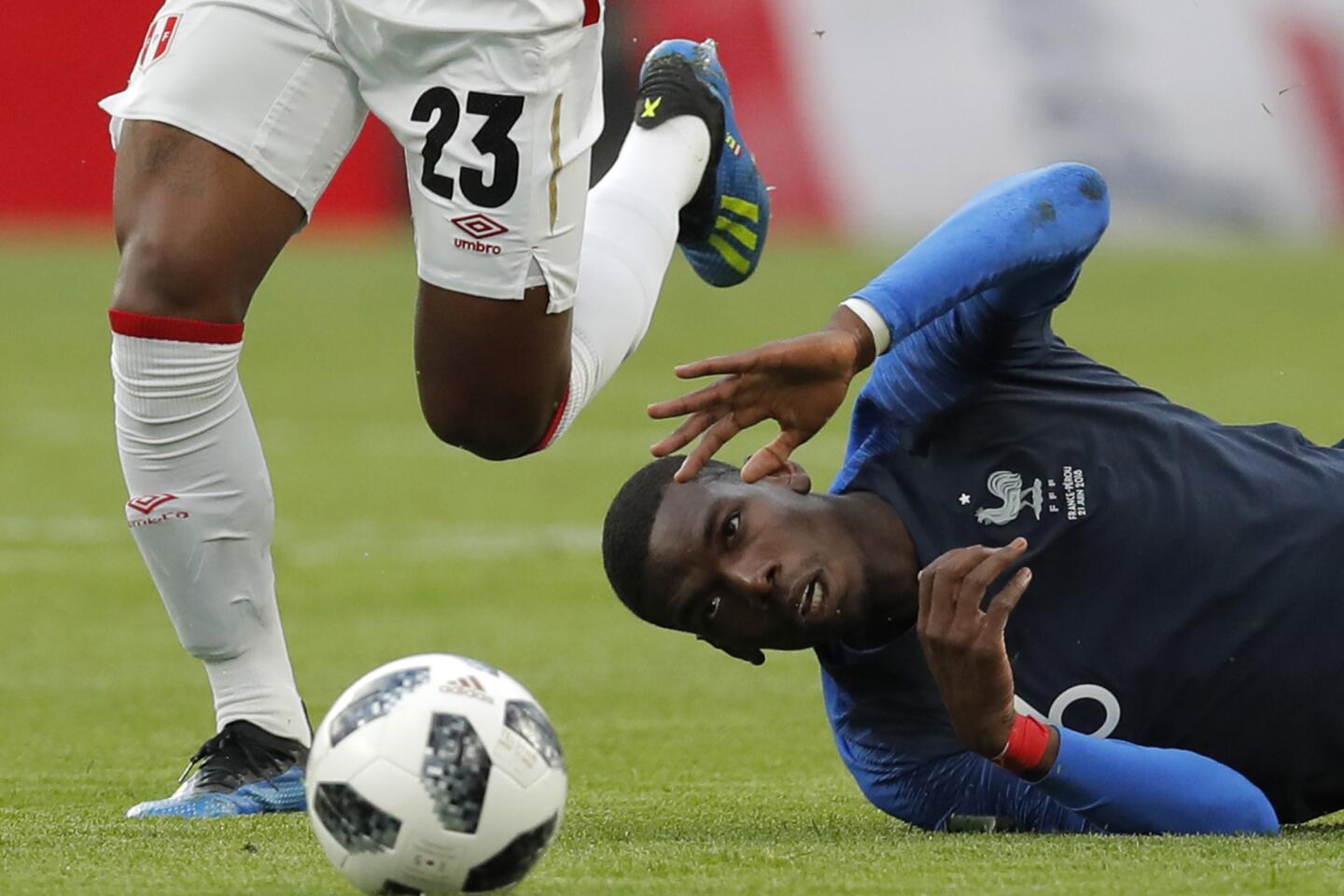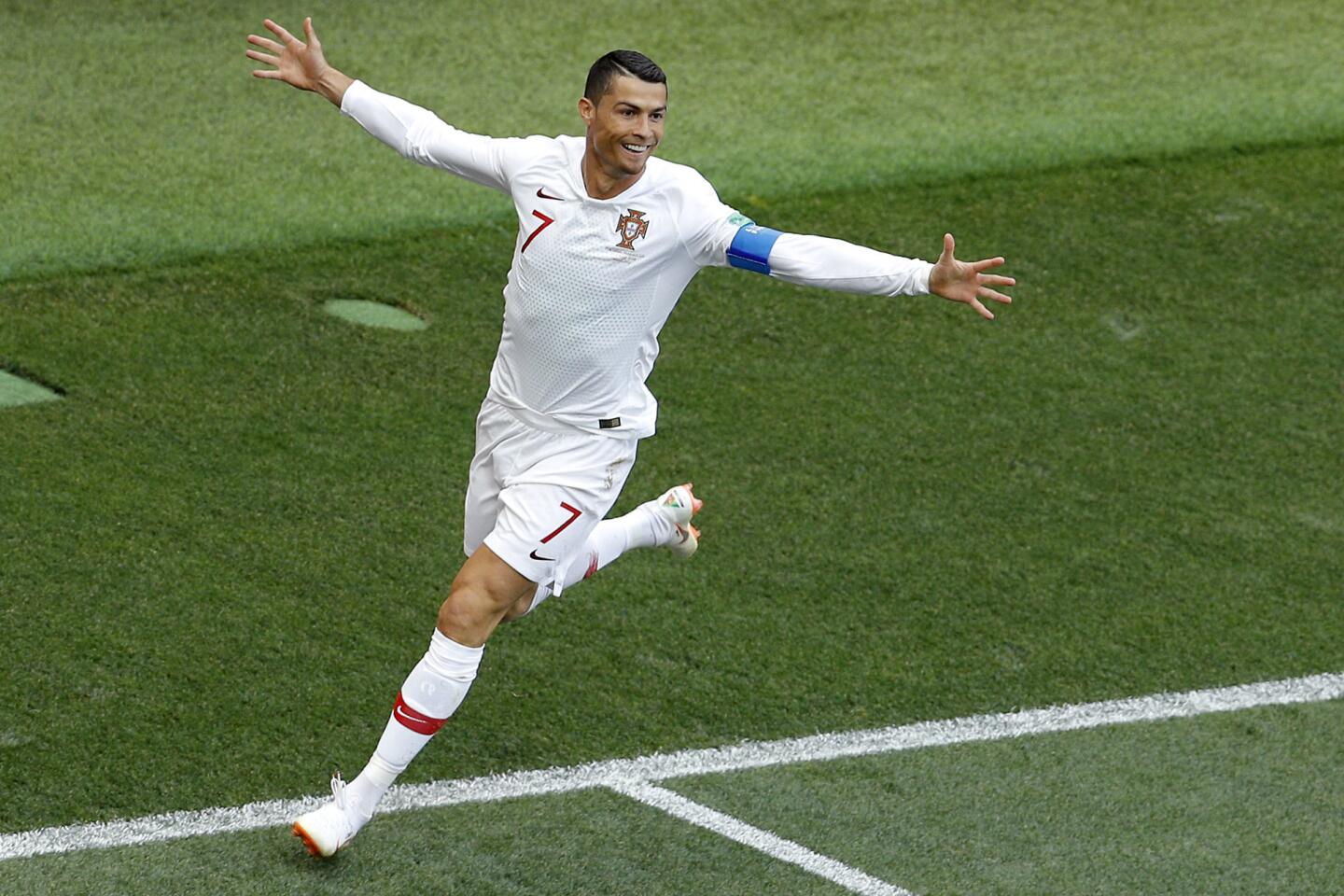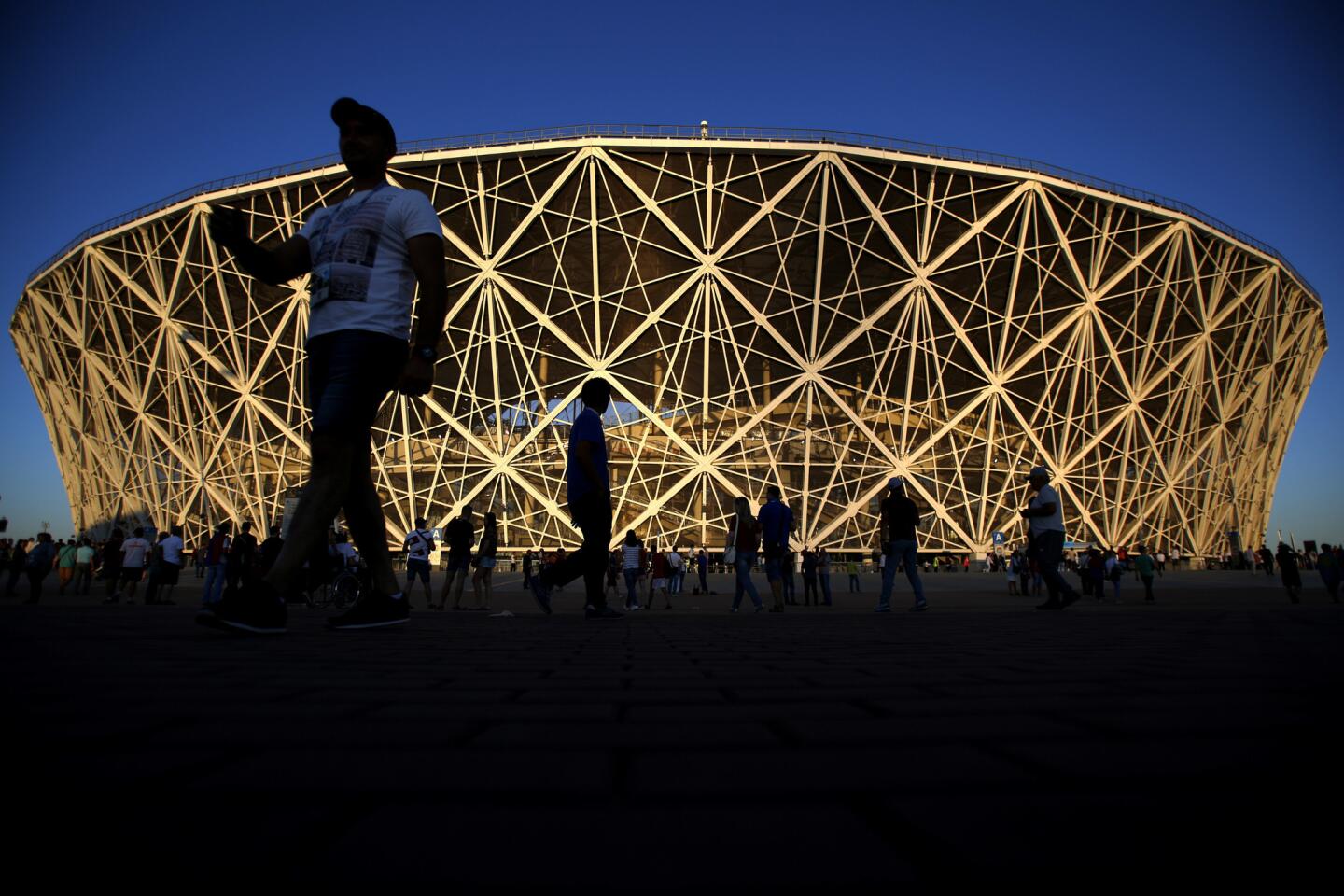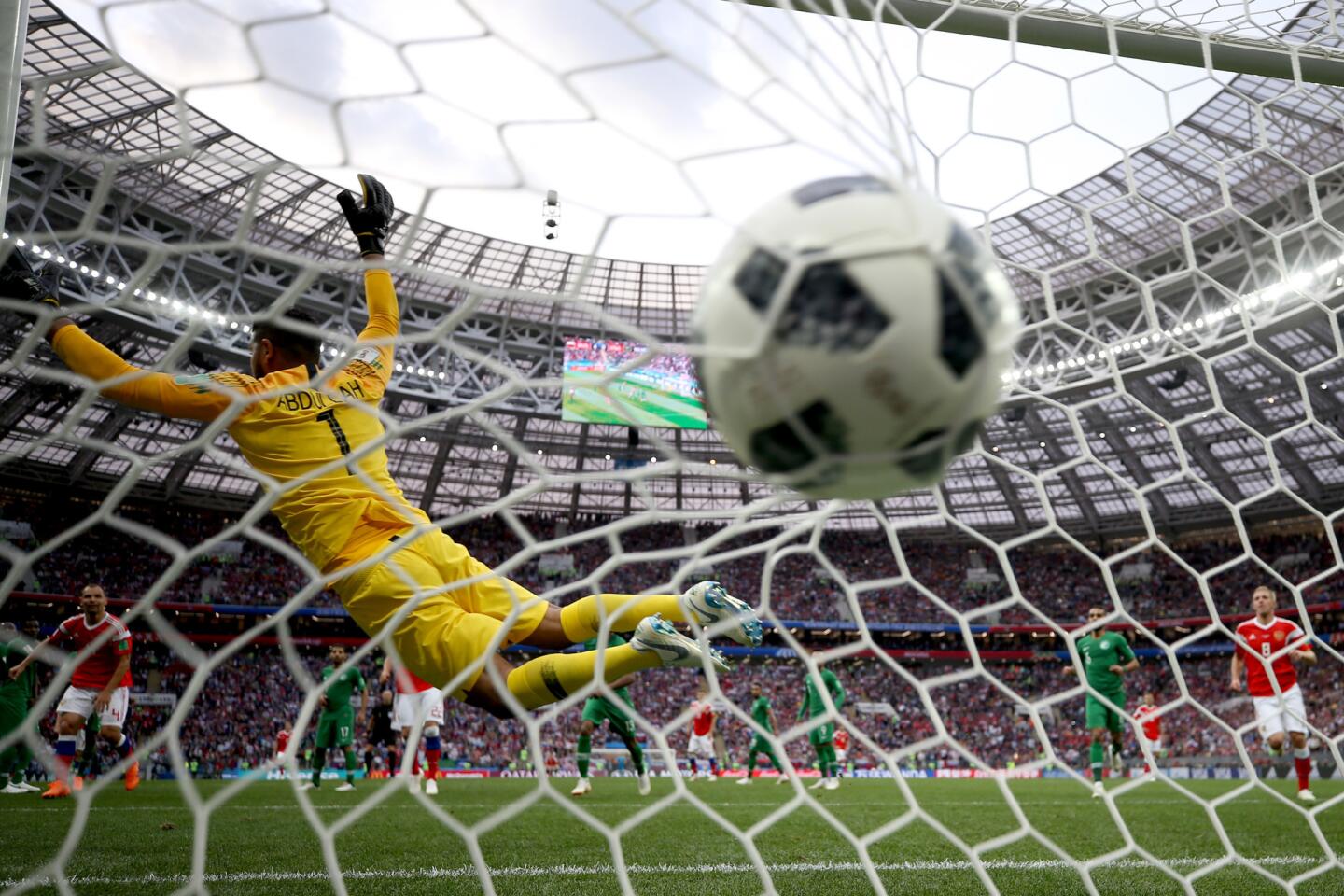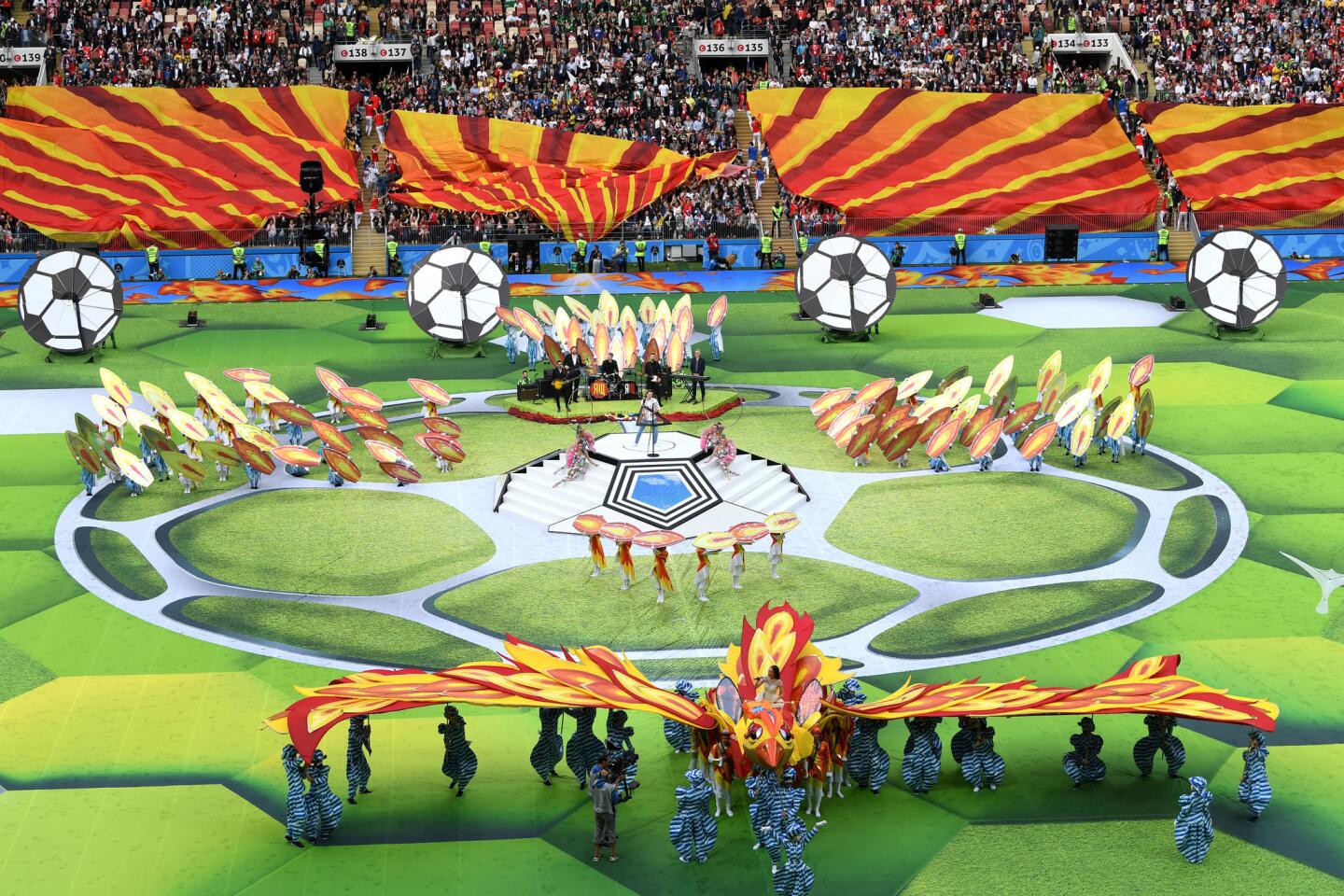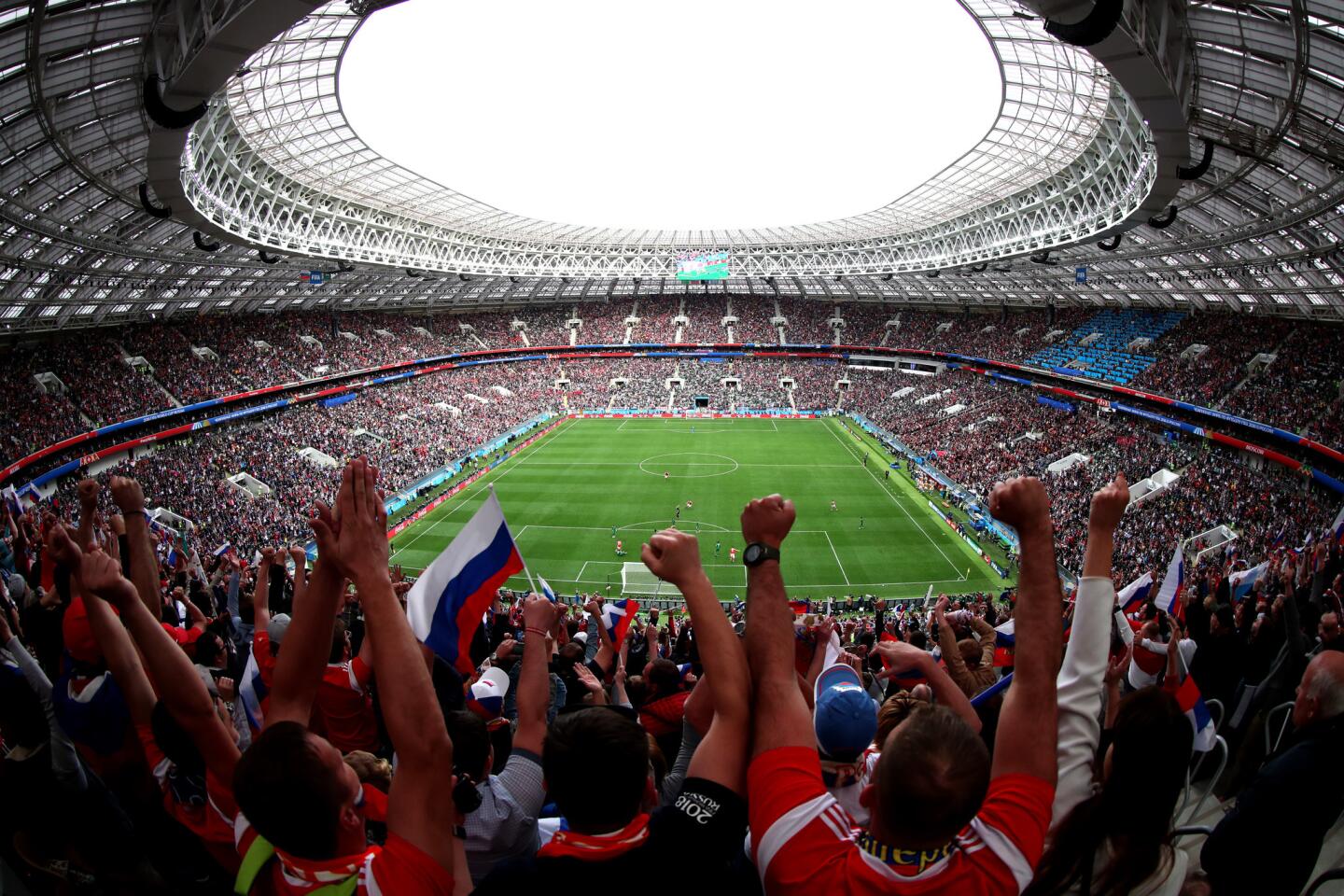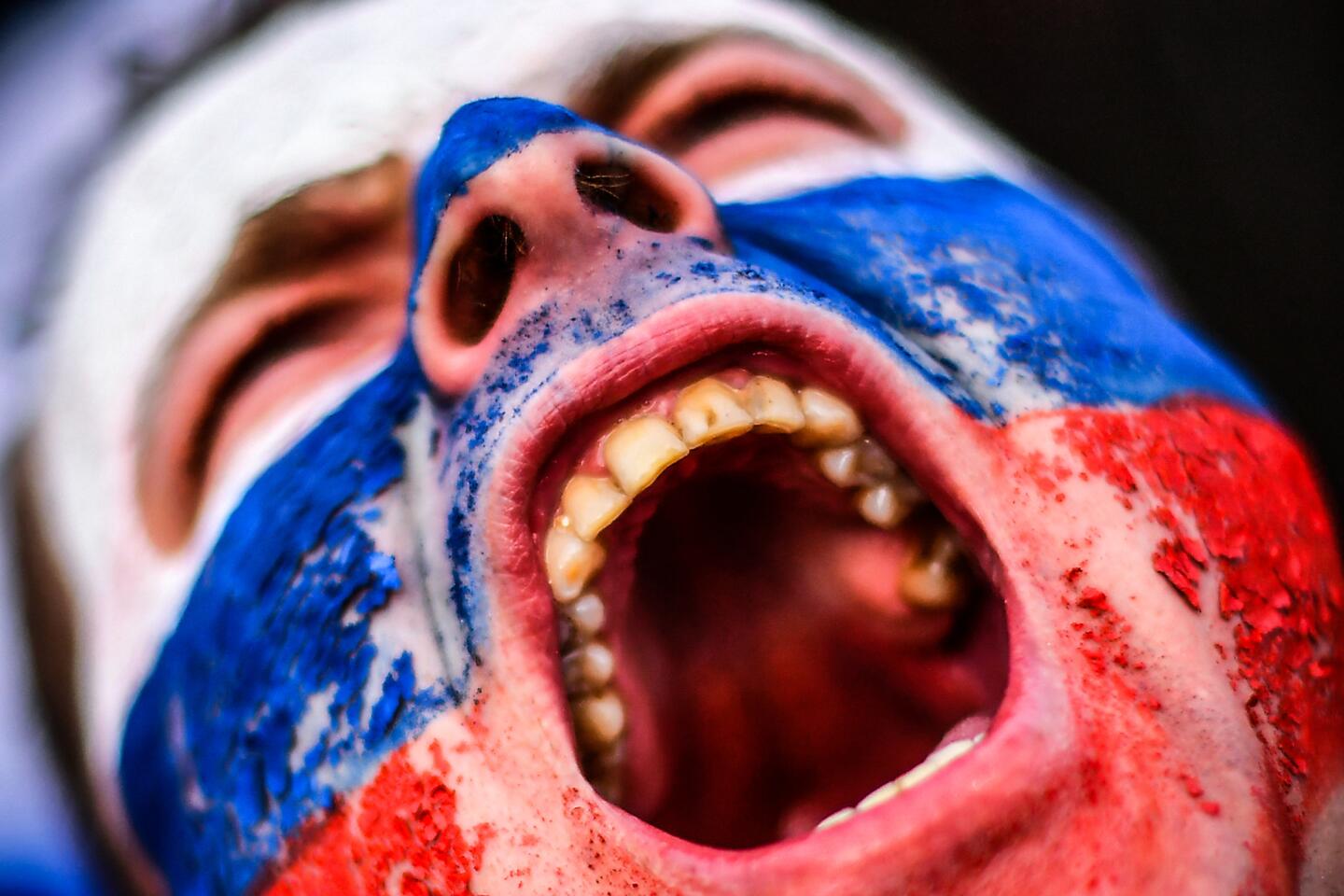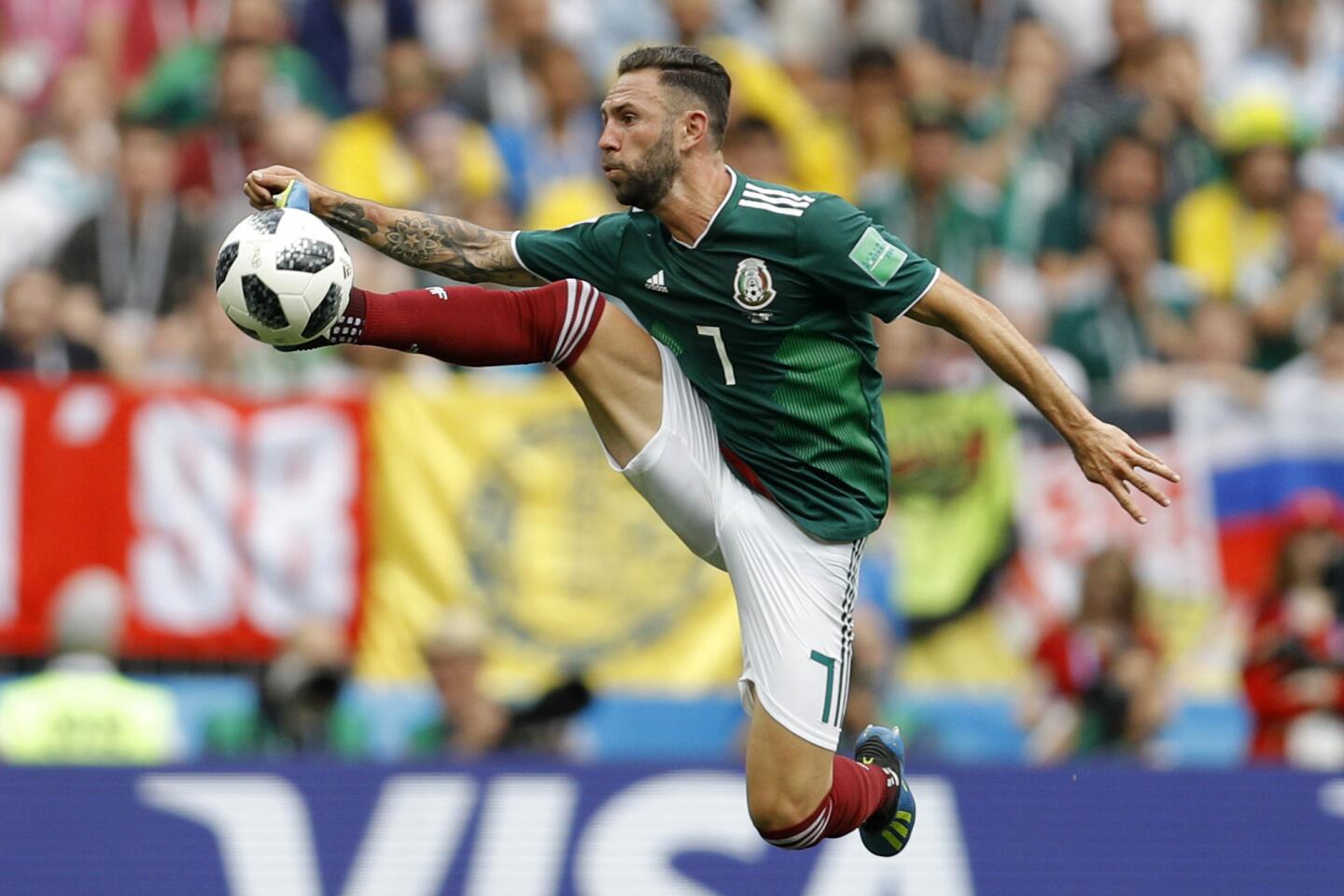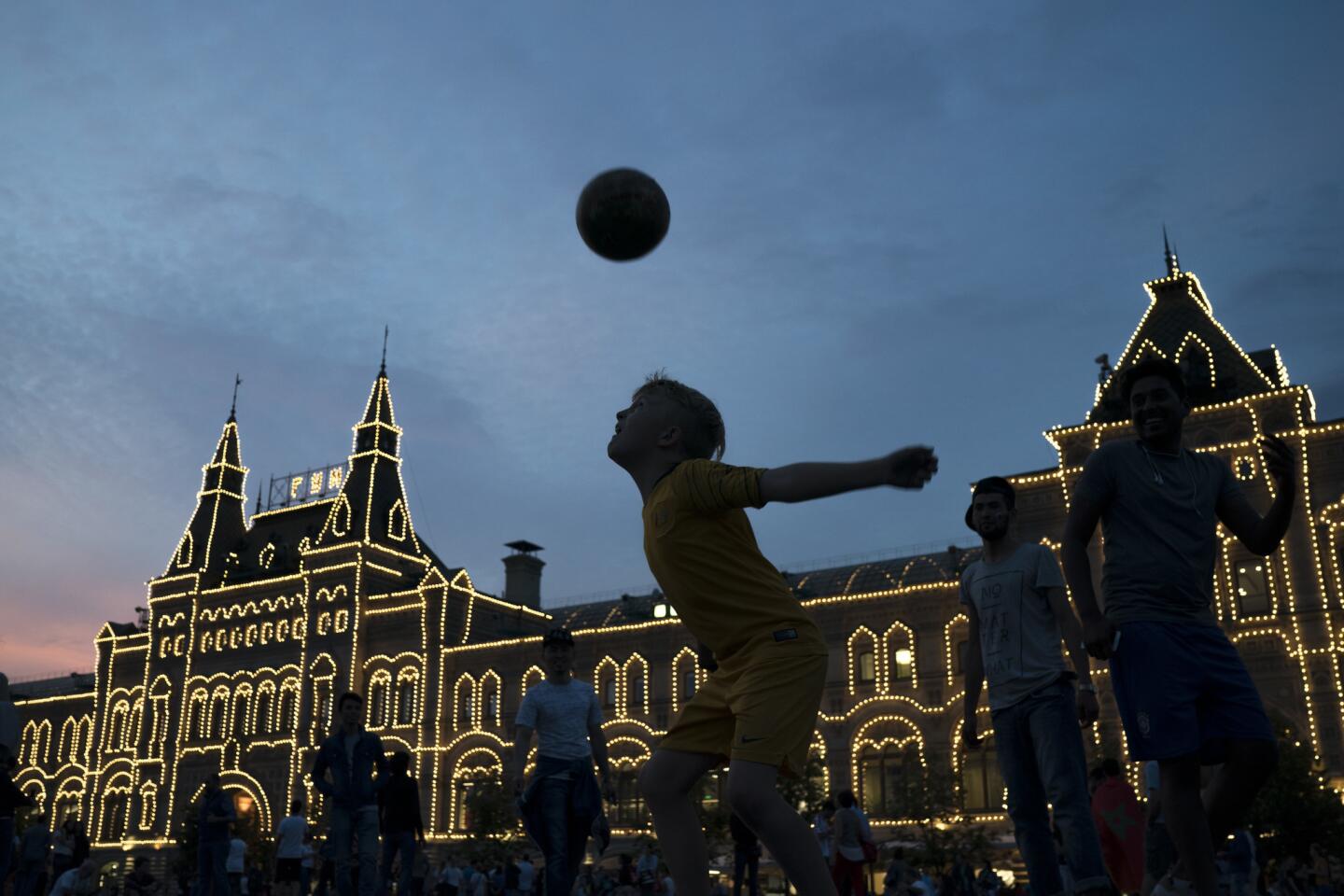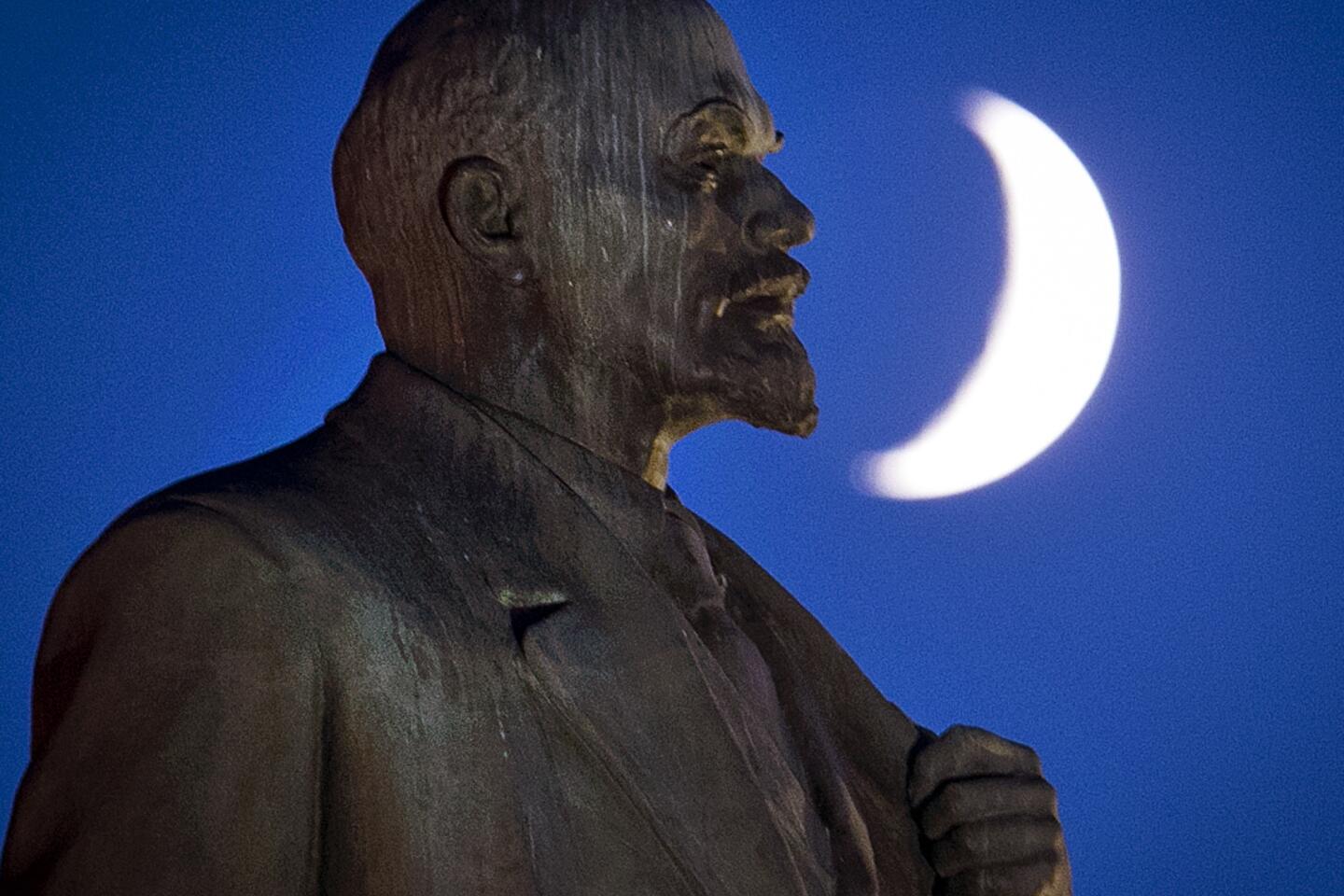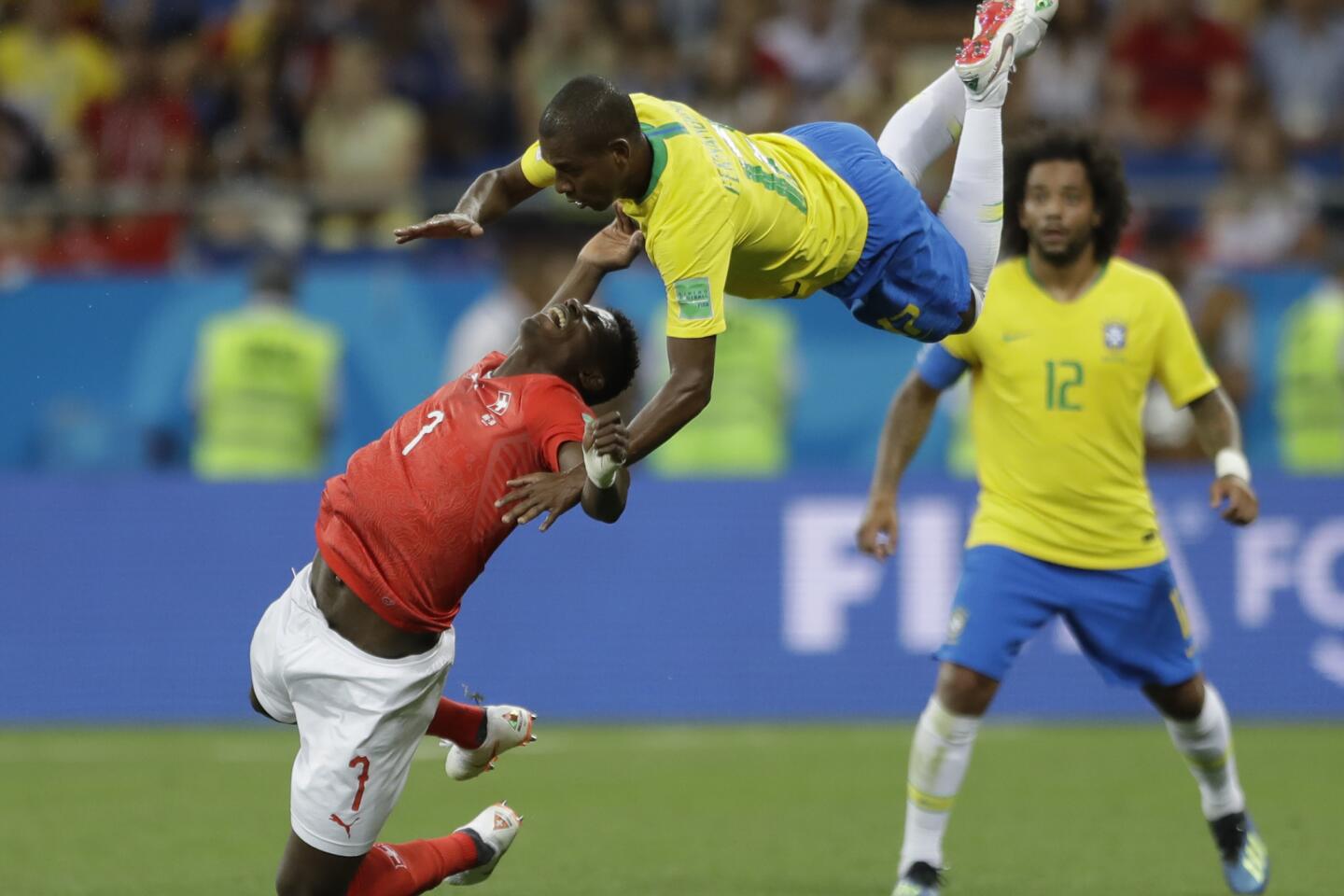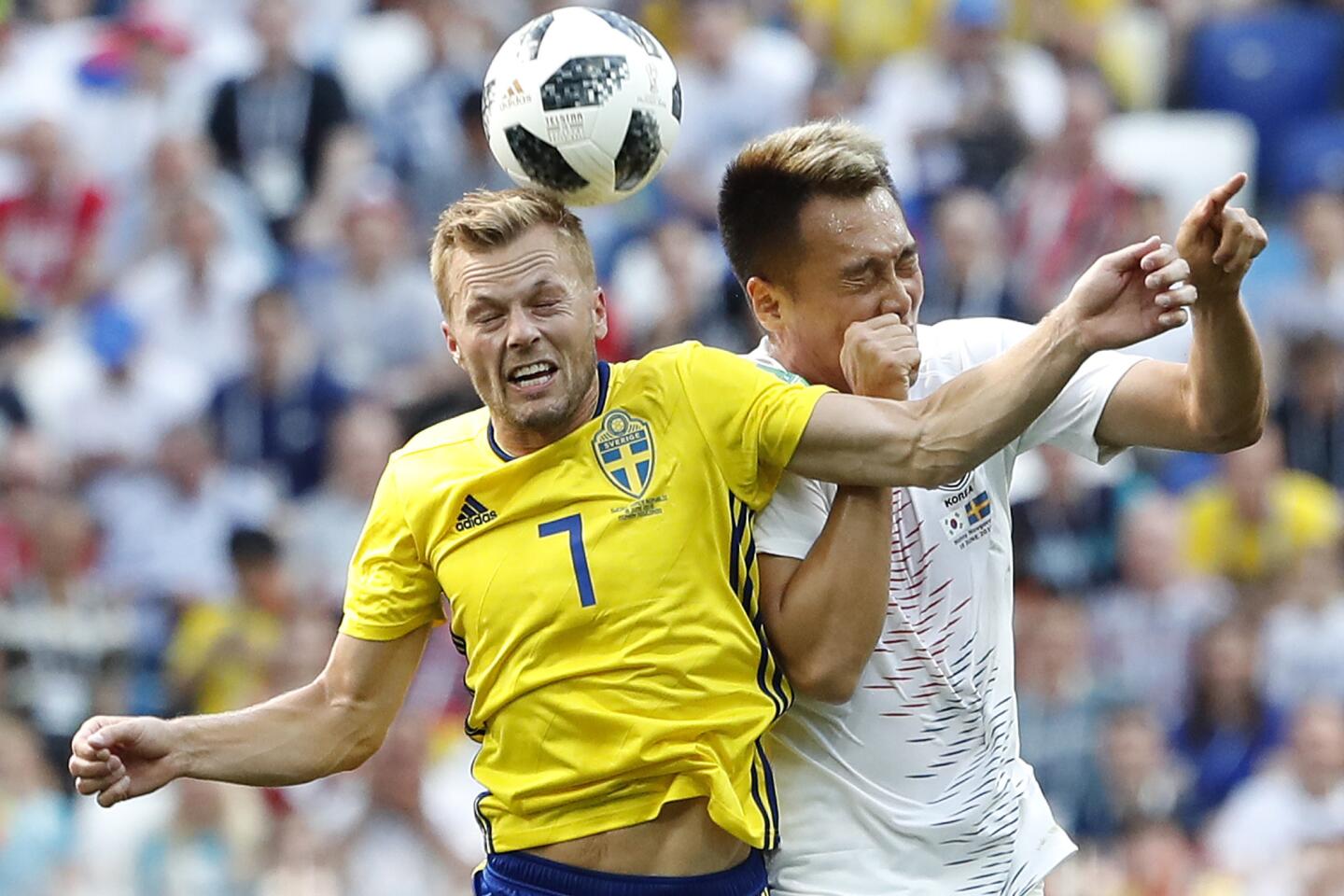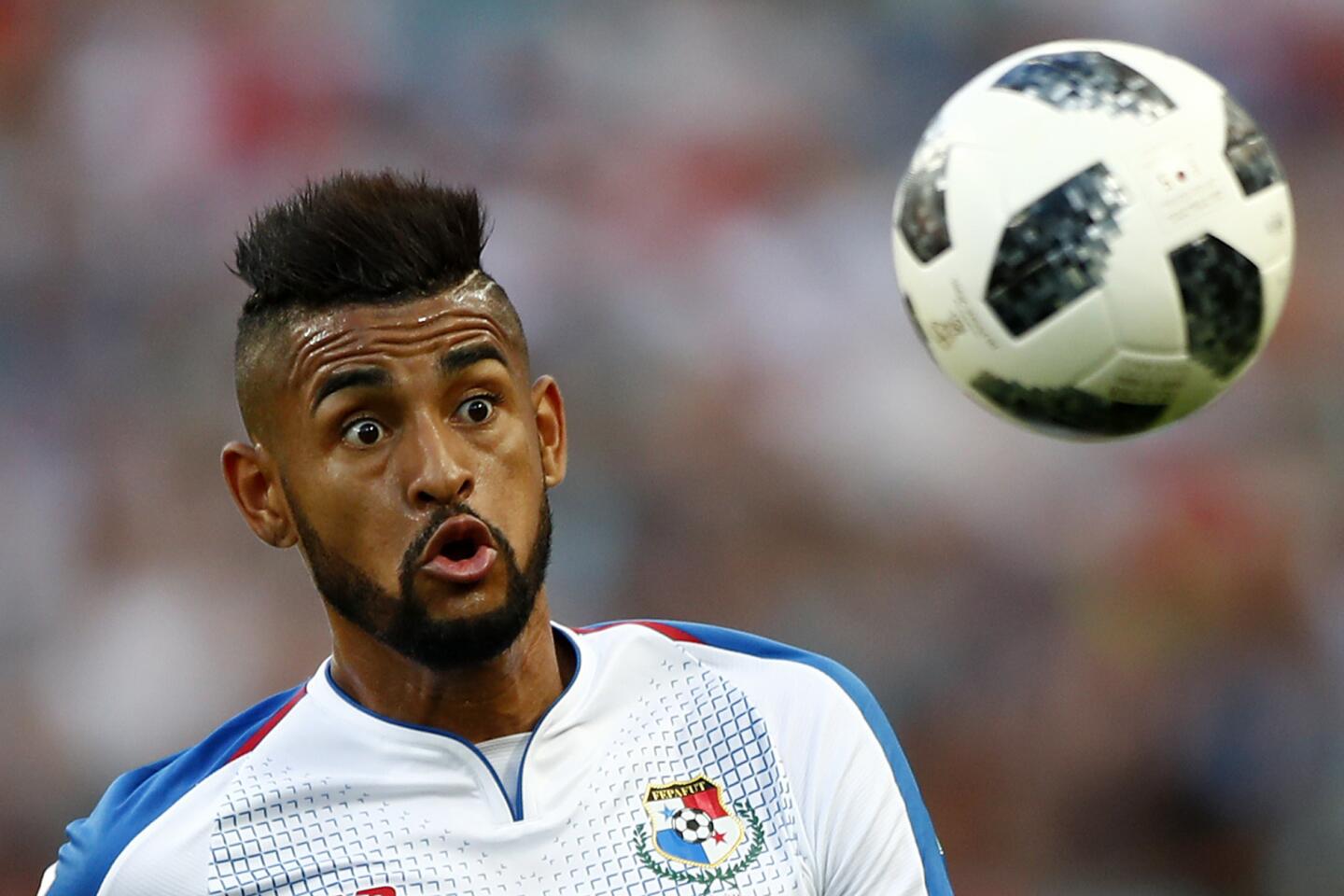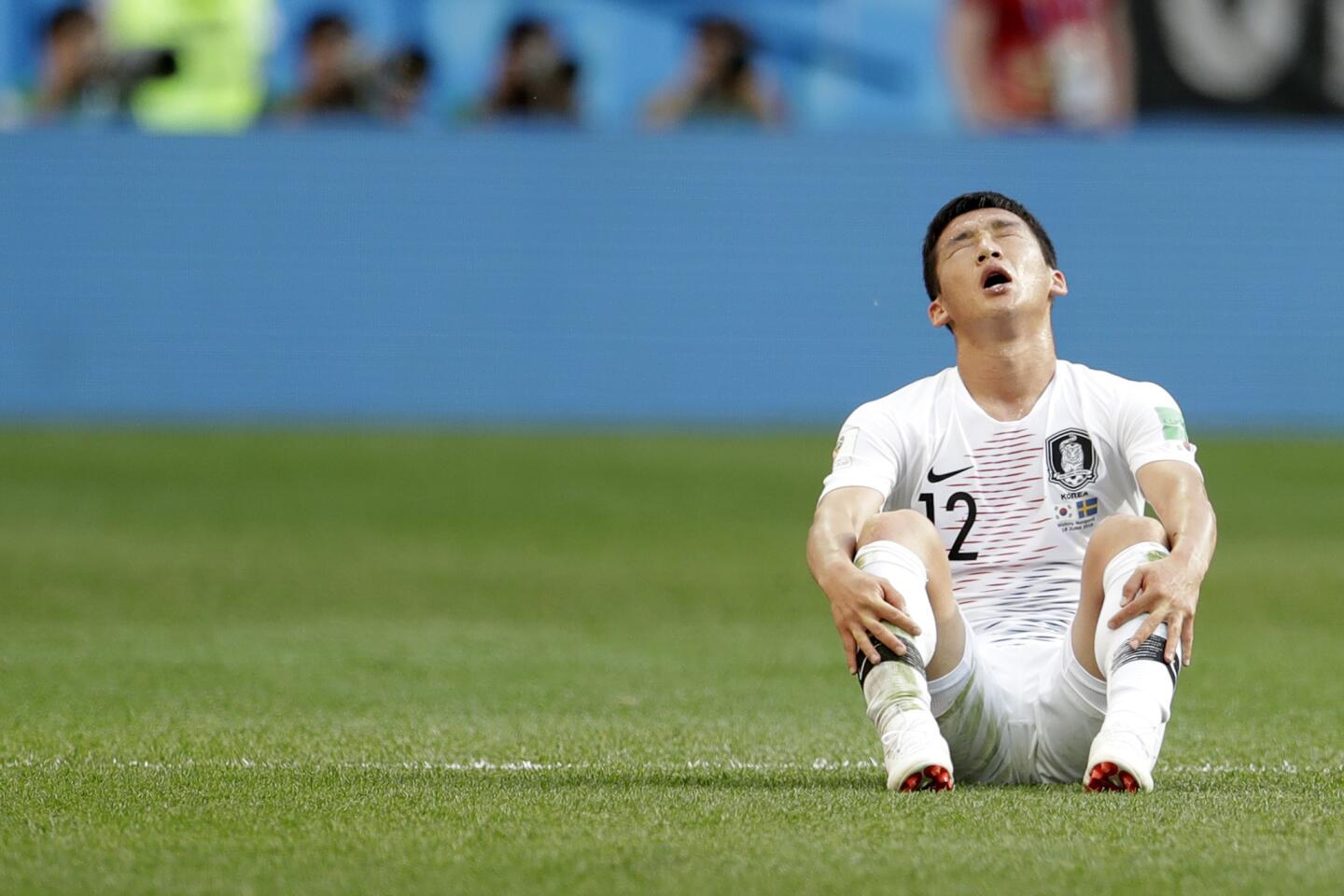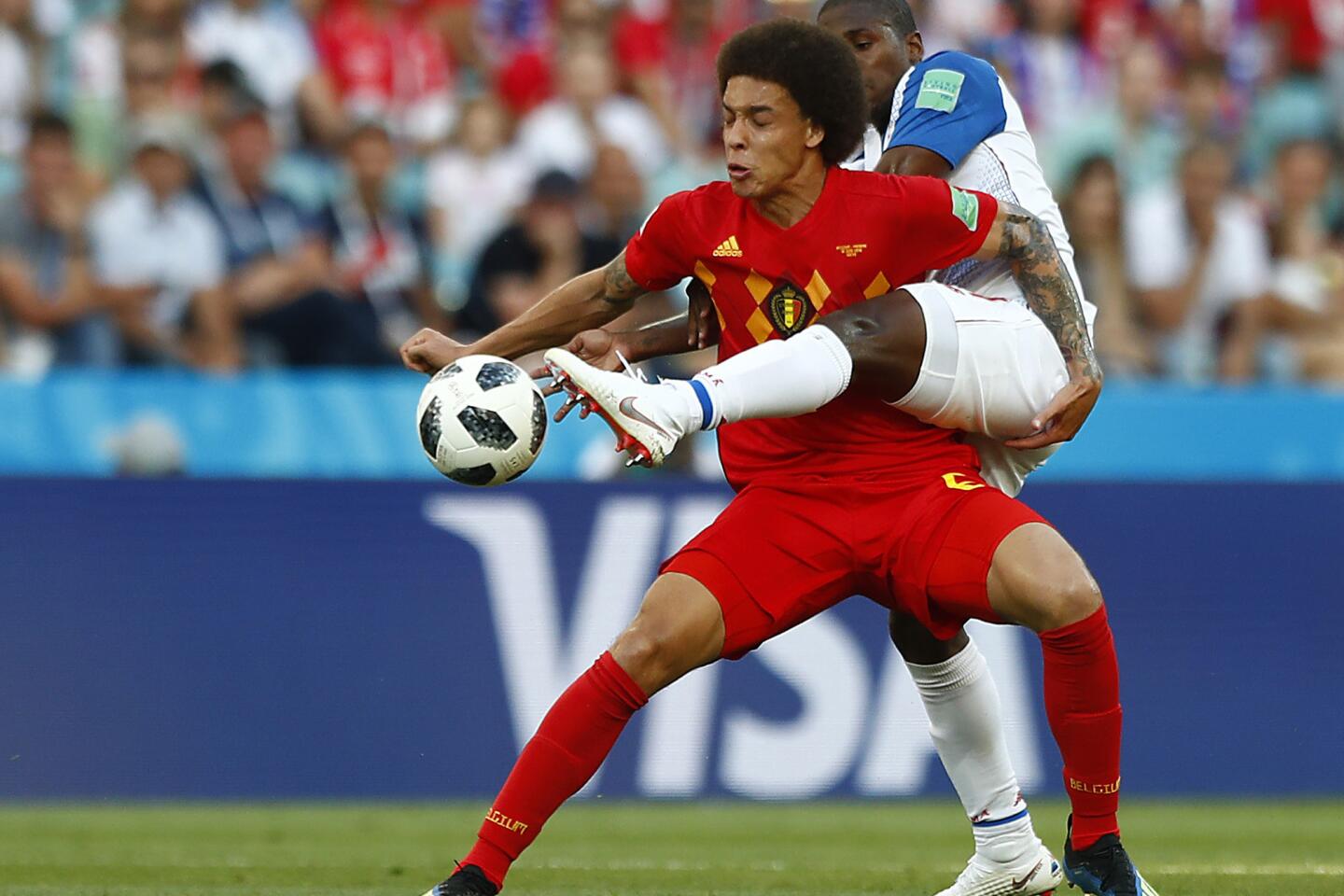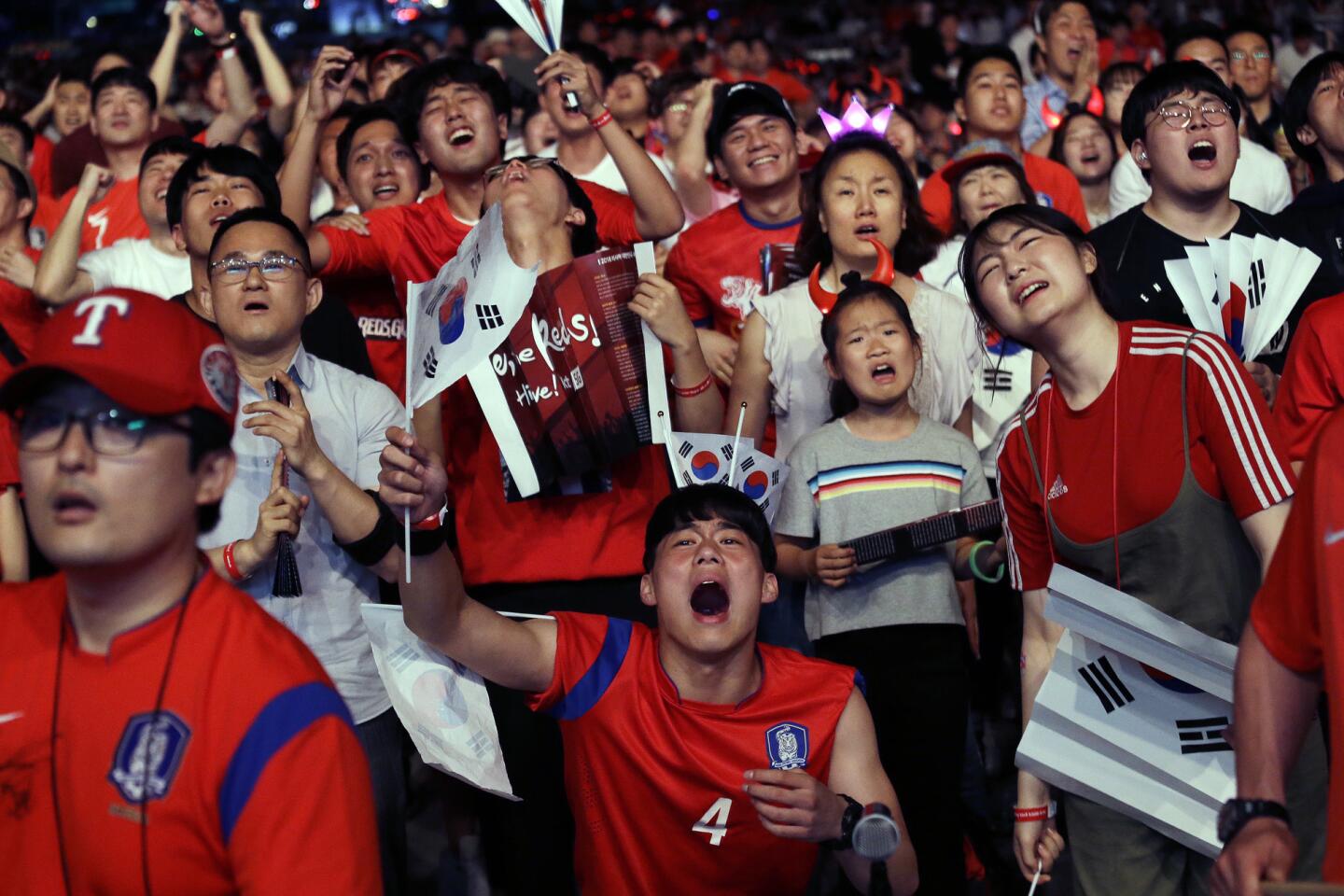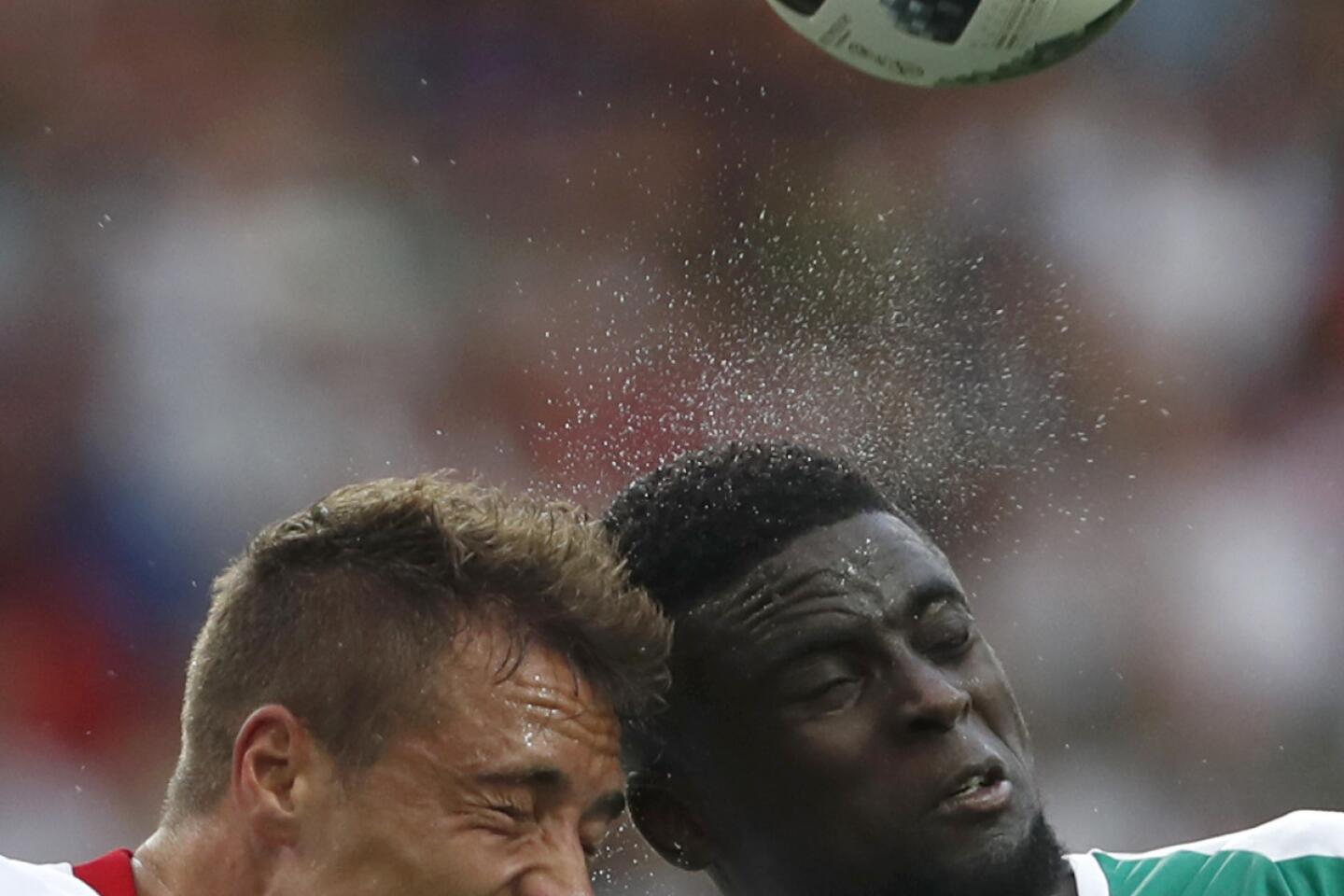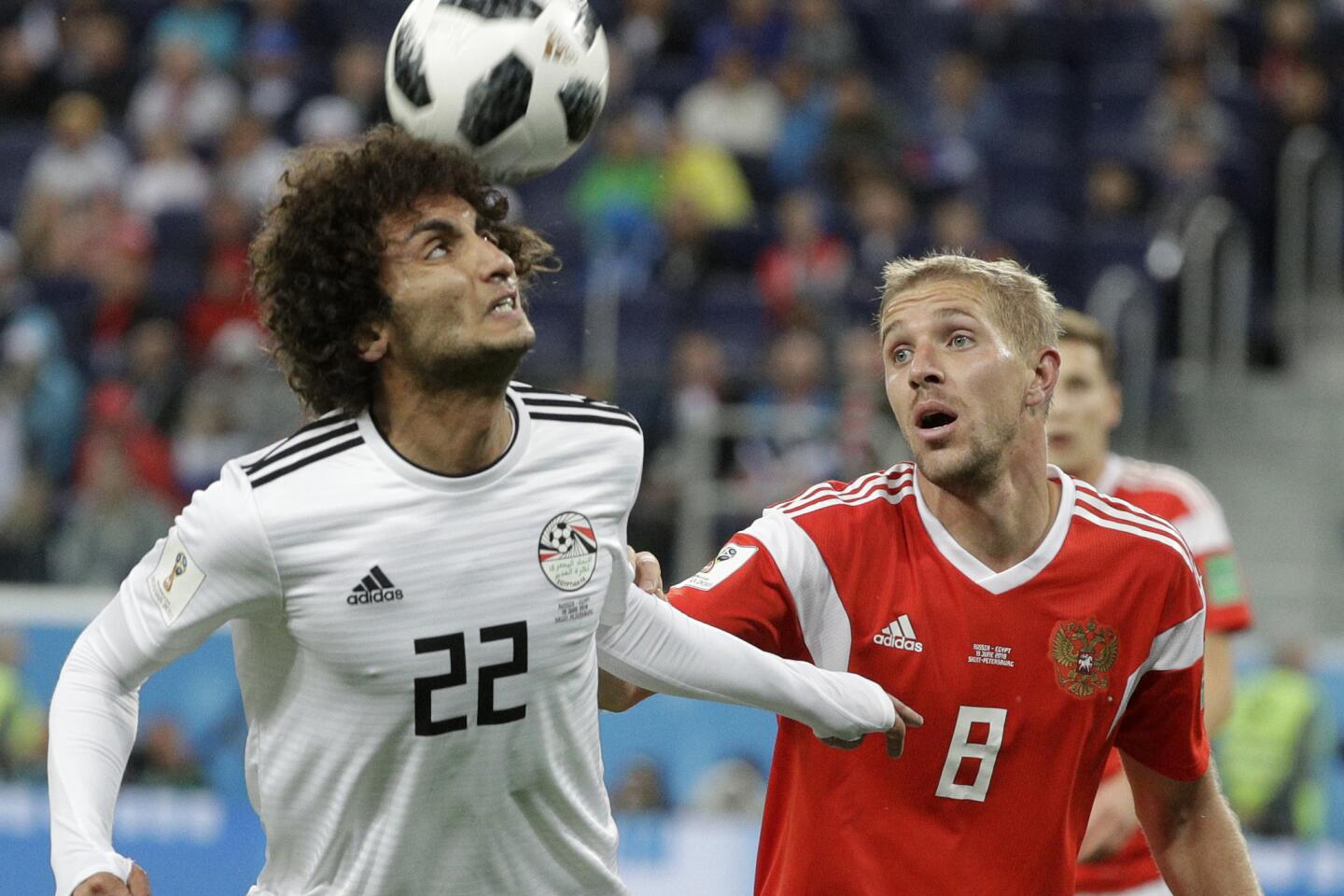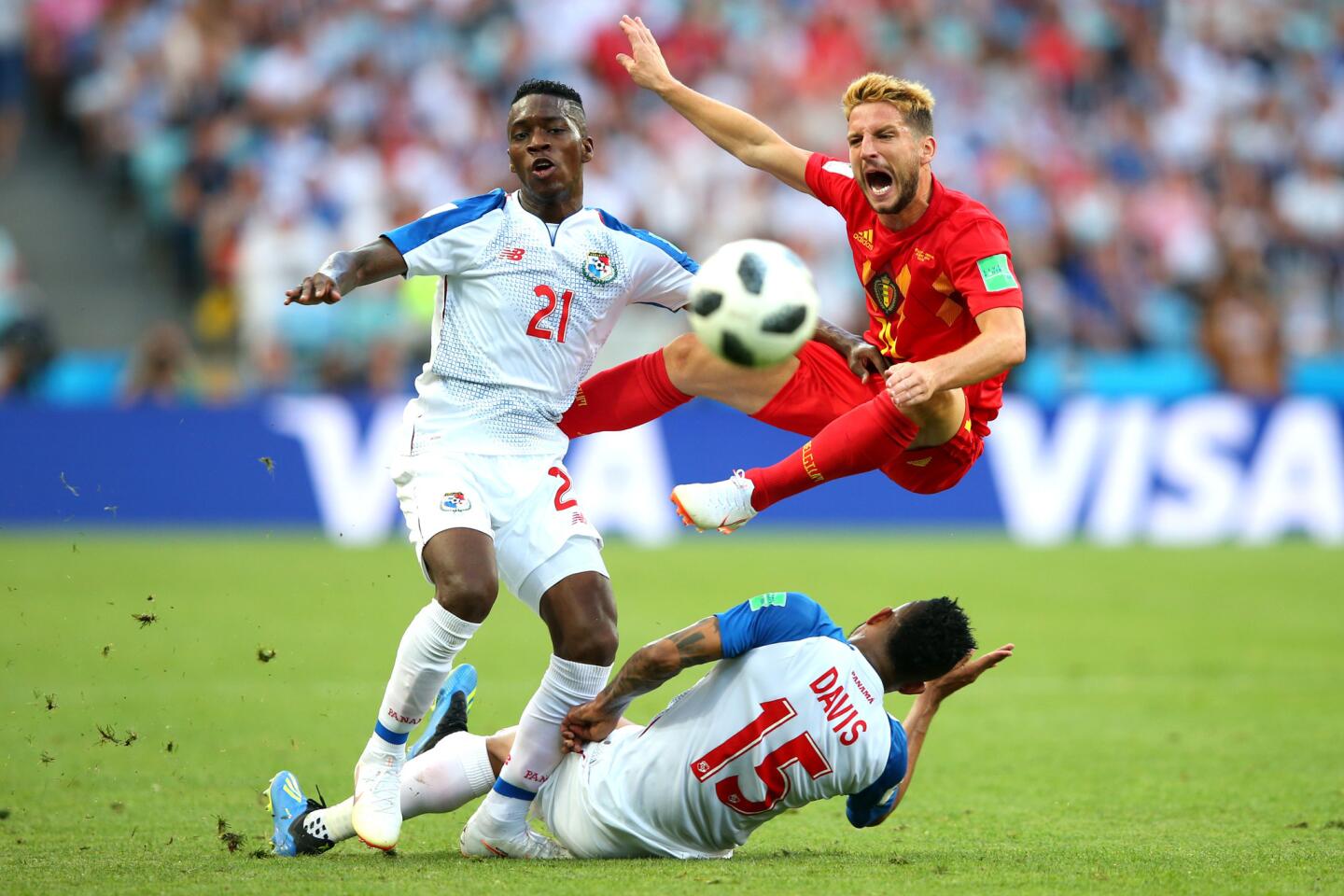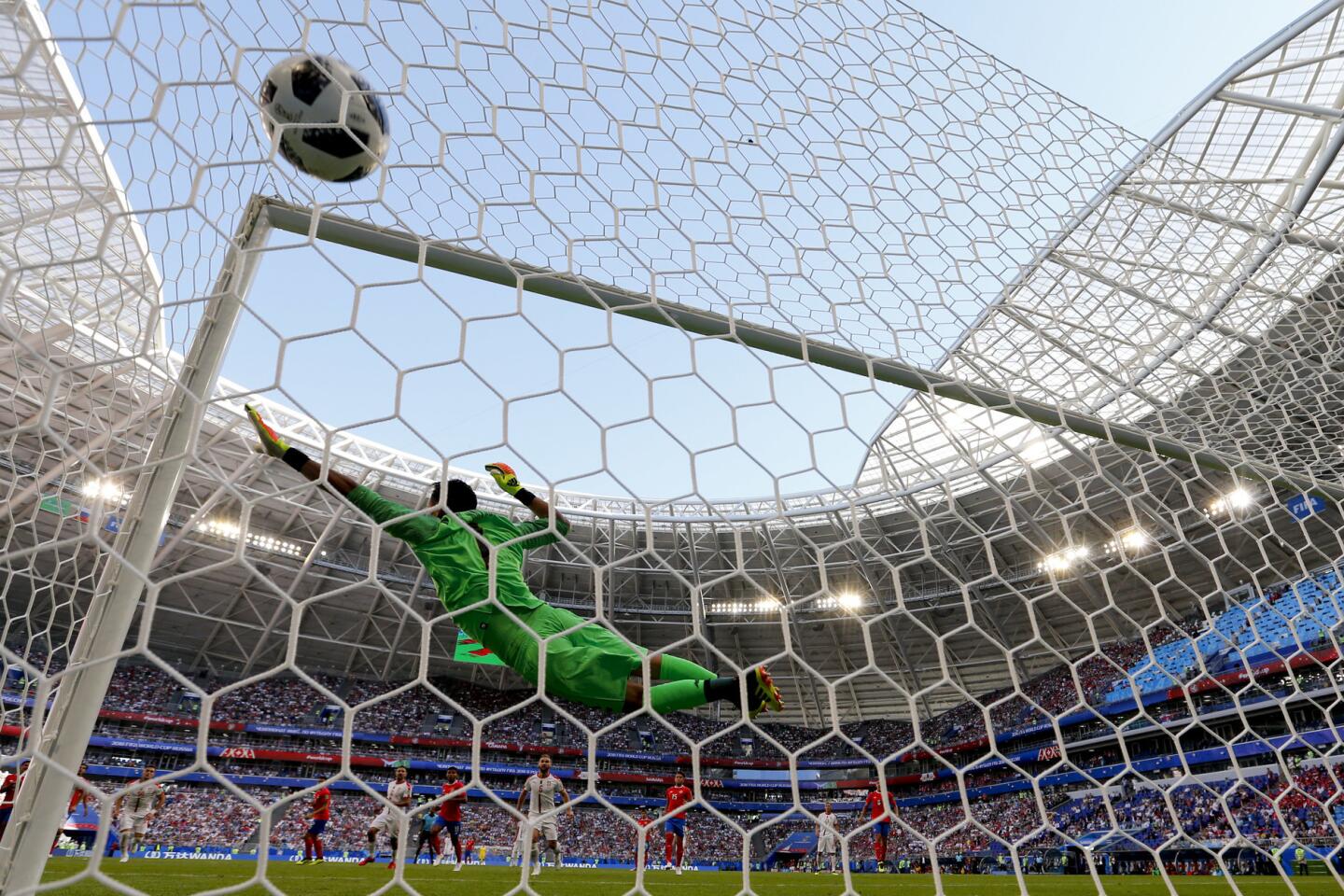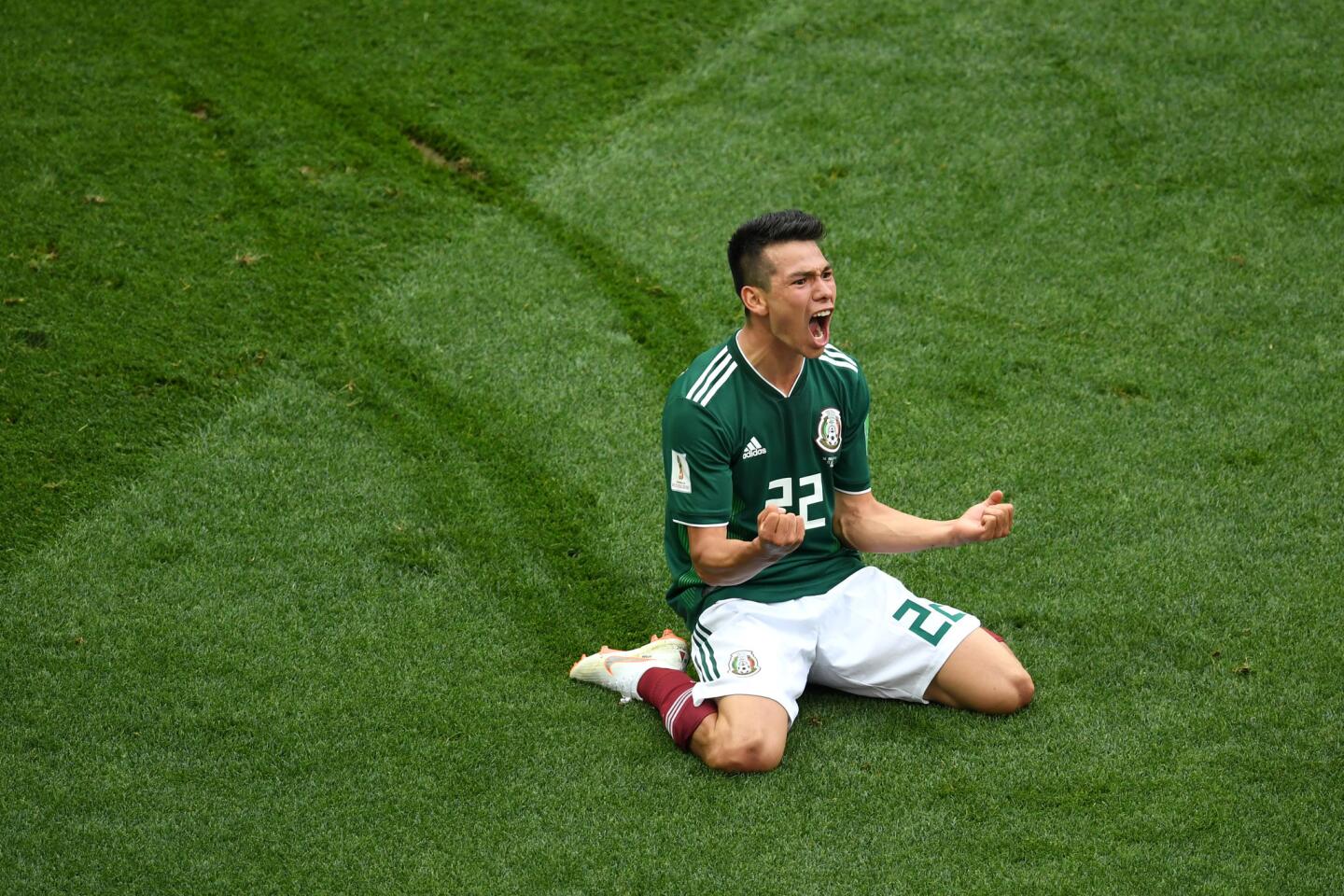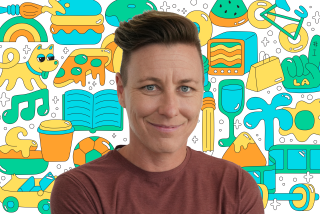Must Reads: How a small dry cleaners in Pasadena is uniting a community around the World Cup
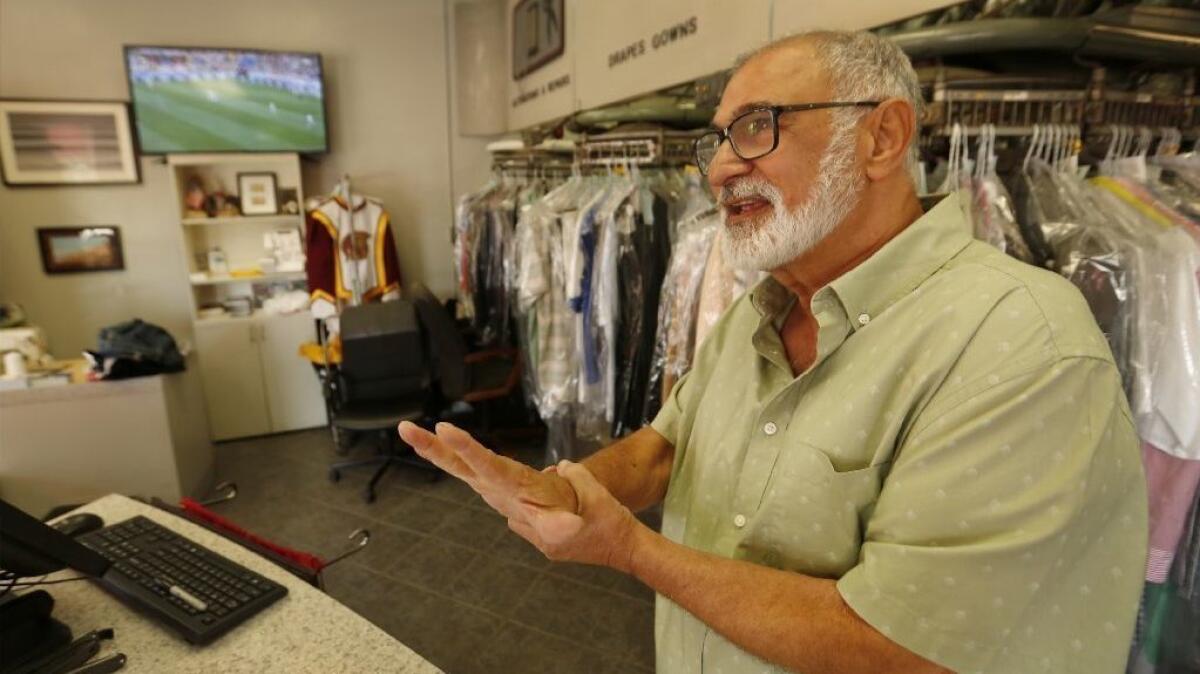
- Share via
Amid the dark roar of a dry cleaning machine and the steamy swoosh of presses appears a different sort of sound.
It’s the noise not of suffocating labor, but of sport, of passion, of light.
It’s coming from a 42-inch television set sitting atop a cabinet above a hanging USC band uniform and a sewing machine. It’s flowing out the narrow front door and into a busy Pasadena street, drawing smiling customers into its odd but uplifting presence.
It’s a dry cleaning shop showing a soccer game.
“Are you just dropping off, or are you also picking up?”
Salah got away… to put the shot wide!
Full coverage of the 2018 World Cup »
Every four years, for the last 40 years, the staff at Champion Cleaners has celebrated the World Cup by touching their neighbors’ hearts while they press their shirts.
In a tradition started by original owner Koko Kederian, every World Cup game during working hours is shown on a TV hauled here from the home of his son, co-owner Joah Kederian.
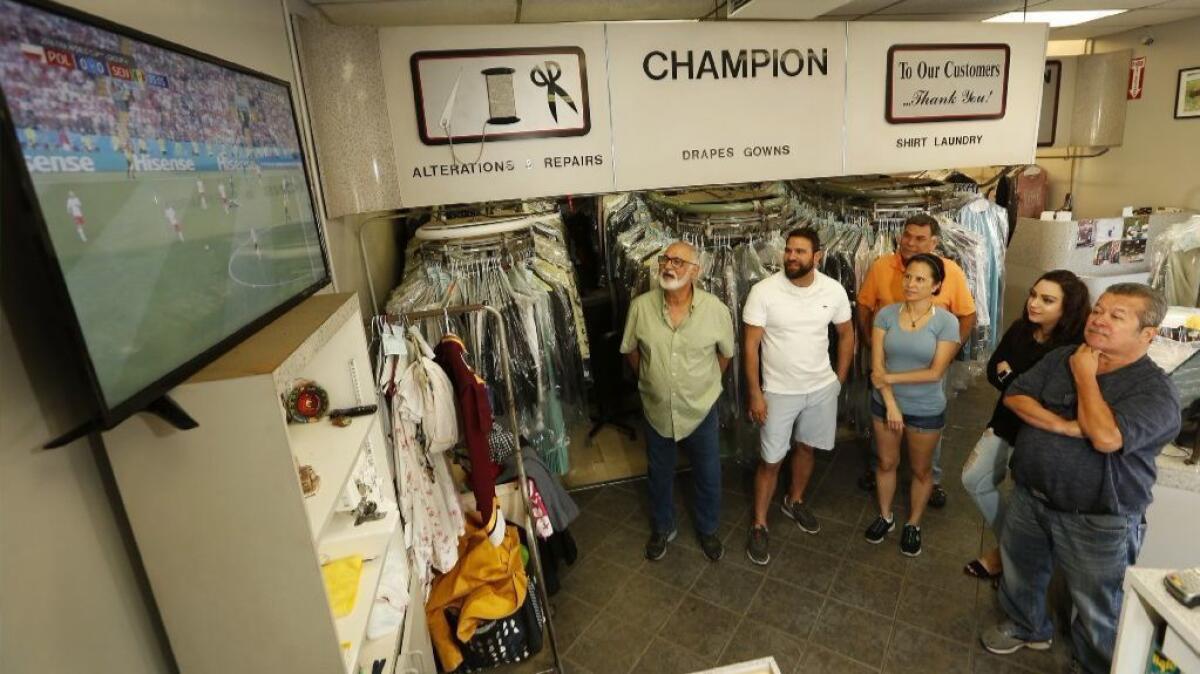
“Look straight ahead while I check that hem.’’
Gueye, stutter step, shot, and it goes in!
Their diverse nine-person staff, which speaks eight different languages, runs from their work stations to the TV to celebrate every goal by every team.
Their customers, an equally diverse group that averages about 300 visits a day, pause to watch and cheer and brag about their favorite countries while they dump off their laundry or pick up their suits.
There’s washing, clapping, pressing, booing, tailoring, taunting, and plastic-wrapped clothes that are left hanging on racks by customers who are so involved in the action they walk away without taking home their shirts.
It’s odd. It’s clamorous. It’s beautiful.
“It’s America!’’ says Koko, 68, a former soccer standout from Lebanon. “The World Cup is one chance to show America exactly who we are. We are everybody from everywhere.’’
The elder Kederian uses the monthlong party to put the shine on the melting pot of his life. Since arriving here from his war-torn country in 1975 with one dollar in his pocket, Kederian’s love for the American dream has become such that he cleans American flags for free and gives deep discounts to the Pasadena Police Department and anyone with a military uniform. Yet he also appreciates the tug of one’s roots, and celebrates the World Cup’s ability to allow everyone, if only for a month, to return to their spiritual home.
“You come in here, you can be who you are,” he says. “The World Cup is a gift.”
Spend a few minutes in Champion Cleaners and understand why the absence of a U.S. team in the World Cup has done little to dampen interest in the United States. The ratings are stronger than ever. The buzz is as powerful as ever.
The scene here is being repeated throughout Los Angeles, sports being celebrated in places whose business is not sports, televisions set up everywhere from taco shops to Chinese restaurants to even the cluttered counter at gas stations. Some folks are talking about Ronaldo, others are waxing about Harry Kane, and, of course, you never know when an entire city block will break out in a chorus of “Cielito Lindo.”
There may not be an American team involved, but as Kederian says, there is very much an America involved, and Champion Cleaners is buzzing.
“I don’t bring that television in here for anything else,’’ says Joah. “Nothing in sports means so much to so many different people.’’
From jerseys to star players: A novice’s guide to World Cup teams »
On this Tuesday morning, here comes a man with an armload of pants professing love for his grandparents’ England.
“This event bonds us in so many ways,” says George Strong. “When that TV is on, I really spend more time in here than I should.’’
There appears a woman with a pile of clothes who is rooting for her parents’ Mexico. She is far from alone, El Tri being the clear rooting favorite of Angelenos still celebrating Mexico’s stunning opening defeat of defending champion Germany.
“It’s the only time the world comes together, and it happens right here,’’ says Maria Quispe, who shouts “Mexico” as she turns from the TV and walks out the door.
Now here comes a woman who, after picking up her freshly starched clothes, notes that she is cheering for both her mother’s Germany and for the symbolism this event holds.
“Soccer is the anti-Trump sport,” says Melissa Meister. “In this event, we all matter, no matter where we’re from. The U.S. might not be here, but we all have a second team.”
One customer who sticks around to watch the end of Russia’s 3-1 victory over Egypt acknowledged his cheering has nothing to do with his background.
“It’s all about Iceland,” says Justin Christman. “Doesn’t everyone love Iceland?”
Koko is cheering for Iceland. Of course he’s cheering for Iceland.
“My Dad is an underdog,’’ says Joah, a former college soccer player who gave up the sport to run Champion’s daily operations. “Our store is all about underdogs.”
When Koko first arrived in America, he was forced to give up a promising soccer career that had included a stint on the Lebanon national team. He was broke. He had to find a job. He began as a shoe designer, but then saw promise in the dry cleaning business even though he had never even washed a towel or folded a shirt. He borrowed the money to buy Champion, learned the business, and today his store has become the equivalent of a friendly corner bar, although one that has about 5,000 total customers.
“They know everybody by name. Everybody knows them. They are really great representatives of the community,’’ says Quispe, an interior designer.
Koko has rewarded the community by hiring workers from all corners, from Armenia to South Korea to Russia, from Jose Velazquez to Luis Diaz to Veronica Ramirez, several of them who have worked here more than 15 years, all of this leading to World Cup rooting in many voices.
“There’s cheering for a lot of different teams in here,’’ says Joah. “I guess you could say we’re all cheering for the world.’’
When the final game of the day ends, the cheering stops. Joah turns off the TV and almost religiously places the remote control on a shelf behind a tiny statue of an Armenian church and in front of tiny American and California flags. The screen will stay black until the next day’s games begin.
“I don’t know who will be playing tomorrow when we come back to work,’’ says smiling champion dry cleaner Koko Kederian on Tuesday afternoon as he disappears back into the maze of whirring machines. “I don’t think it matters.’’
Get more of Bill Plaschke’s work and follow him on Twitter @BillPlaschke

